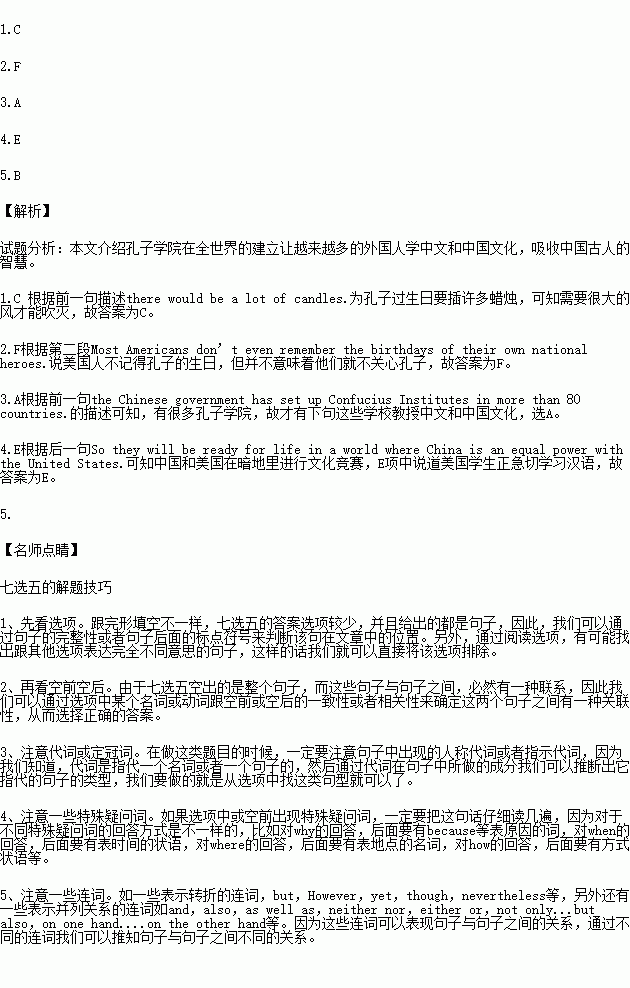题目内容
根据短文内容,从短文后的选项中选出能填入空白处的最佳选项。选项中有两项为多余选项。
There are so many Confucian Temples (孔庙) around the world, especially in China. If Confucius were still alive today and could celebrate his September 28 birthday with a big cake, there would be a lot of candles. 1.
While many people in China will remember Confucius on his special day, few people in the United States will give him a passing thought. It’s nothing personal. Most Americans don’t even remember the birthdays of their own national heroes.
2.In many ways he has become a bridge that foreigners must cross if they want to reach a deeper understanding of China.
In the past two decades, the Chinese studies programs have gained huge popularity in Western universities. More recently, the Chinese government has set up Confucius Institutes in more than 80 countries. 3.The main courses of Chinese culture usually included Chinese art, history and philosophy(哲学). Some social scientists suggest that Westerners should take advantages of the ancient Chinese wisdom to make up for the disadvantages of Westerners philosophy. 4.So they will be ready for life in a world where China is an equal power with the United States. Businessmen who hope to make money in China are reading books about Confucius to understand their Chinese customers.
5.Today China attracts the West more than ever, and it will need more teachers to introduce Confucius and Chinese culture to the West.
As for the old thinker, he will not soon be forgotten by people in the West, even if his birthday is.
A. These schools teach both Chinese language and culture.
B. So the old thinker’s ideas are still alive and well.
C. He’d need a fan or a strong wind to help him put them out.
D. Why do Americans have no knowledge about Confucius?
E. Students in the United States, in the meantime, are racing to learn Chinese.
F. But this doesn’t mean that Americans don’t care about Confucius.
G. This is because China is becoming increasing powerful.
 孟建平小学滚动测试系列答案
孟建平小学滚动测试系列答案 黄冈天天练口算题卡系列答案
黄冈天天练口算题卡系列答案
